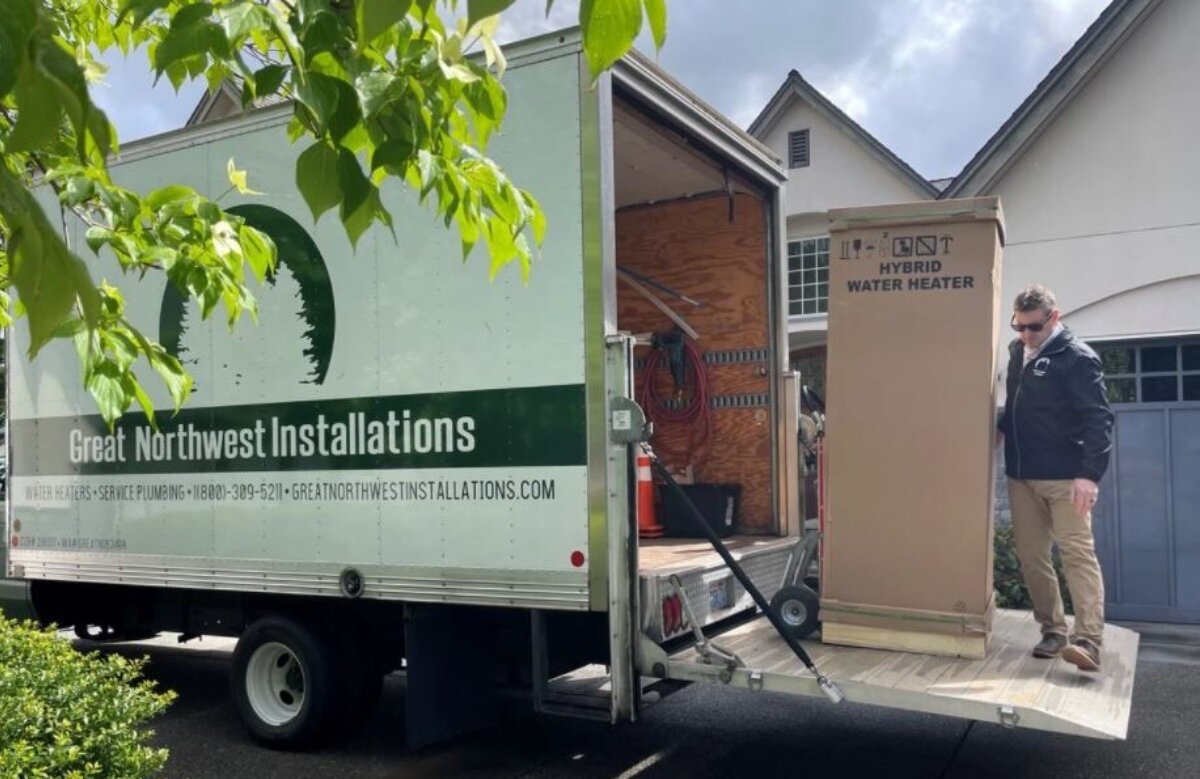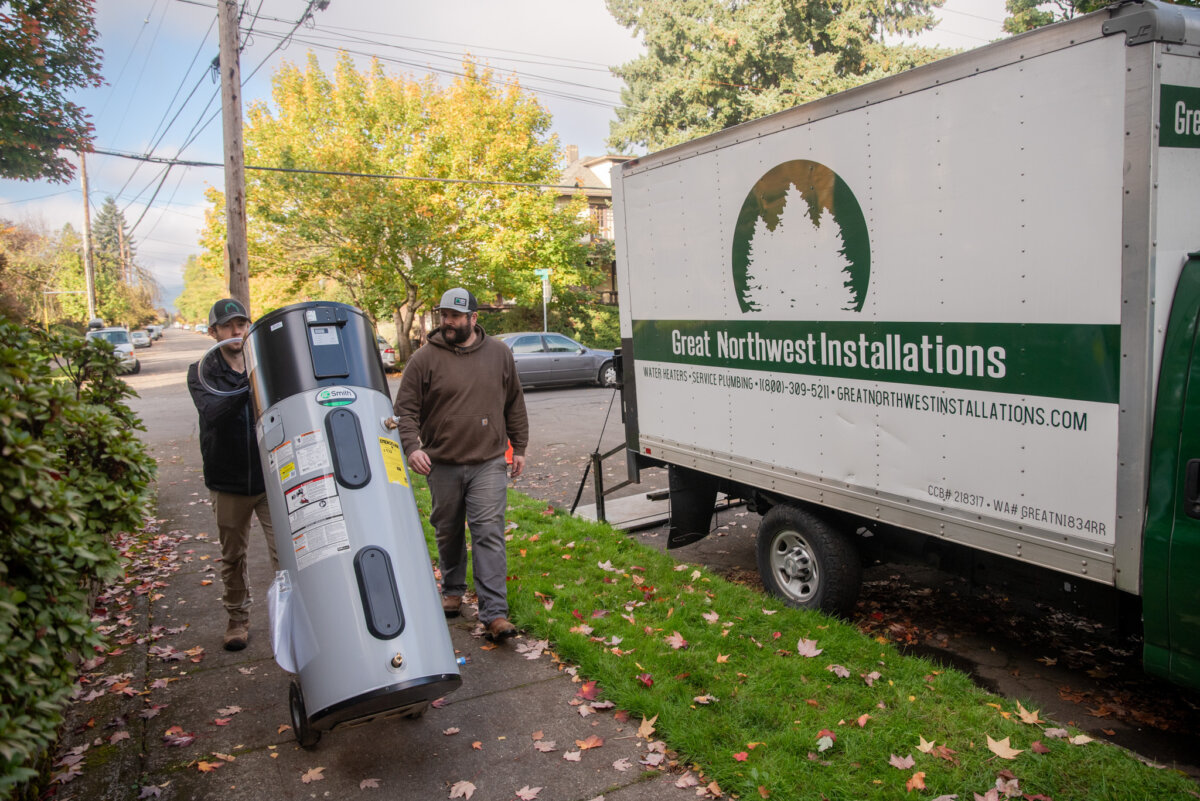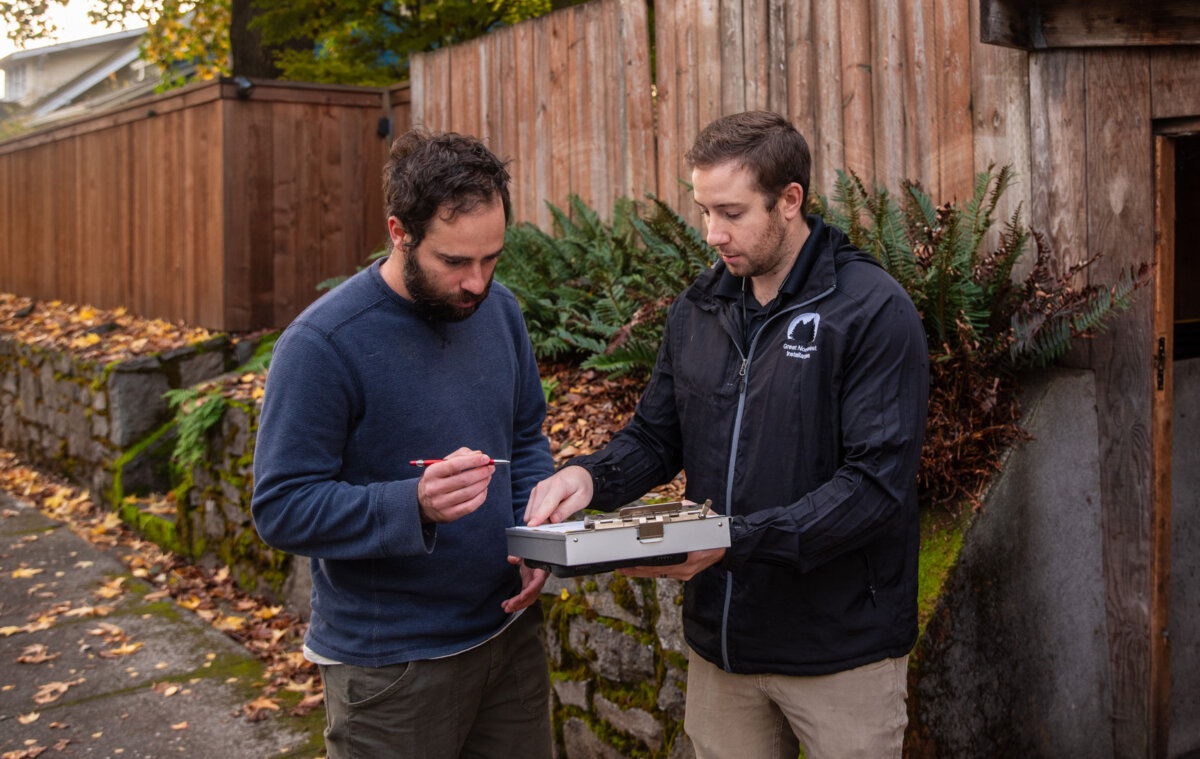
Steve’s vision for Great Northwest Installations was clear from the start: Where it makes sense, replace conventional electric-resistance water heaters with HPWHs. This perspective was driven by a realization that energy-efficient technology had the potential to provide his customers with exceptional value simply through savings. The other benefits, like smart features and a reduced environmental impact, could also be selling points for certain customers.
Seeing that the rest of the plumbing industry was slower to embrace the technology, this focus on HPWHs would be a point of differentiation between Great Northwest and the competition. Steve made the decision to trust his instinct and seize the opportunity, and founded the company on innovative business model that made HPWHs the default offering.
From the start, Great Northwest faced a fundamental challenge: Customers had never heard of HPWHs. This could make selling them especially tough when homeowners — especially those whose old water heater had failed and who hadn’t budgeted for a big expense — just wanted something they knew would work. In most cases, they would take their installer’s recommendation; they didn’t want to have to make a decision.
Steve saw this as an opportunity for education. His customers deserved to know about HPWHs and the additional long-term value they could provide over standard electric resistance water heaters before it was too late. “If you’re out there proactively selling HPWHs, customers have time to make a thoughtful, well-researched decision and they come back to ask about it. Historically we had done 90% emergency replacements, but we’ve seen that when people are not under the gun, those numbers get reversed. I’ve never seen that in all the time I've been doing this.”
With help from his wife and colleague, Prima, he developed a new intake process to determine whether a HPWH would be a good fit for a customer. They requested a few simple details about the old water heater and asked for a cell phone picture of the installation location. In most cases, this was sufficient to determine if there were any potential complicating factors, saving time and streamlining the sales conversation.
Getting customers to buy into HPWHs was one hurdle; developing an experienced workforce that believed in the technology was another. “The transition to new technology can be met with hesitation from plumbers,” he said. “But training and hands-on experience have helped us make the right decision for our customers and their homes. HPWHs aren’t always the right fit, but if you understand how they work and the value they provide the customer, most of the time they are the superior choice.” This dedication to education and customer service has proven to be a differentiating factor and a key to Great Northwest’s success.

As Great Northwest installed thousands of HPWHs in Oregon and Washington, the company developed a reputation as especially knowledgeable and enthusiastic. This led to connections with utilities, manufacturers, and distributors that would prove especially valuable to the growing business.
By proactively partnering with utilities that were eager to promote their HPWH customer incentives, Steve was able to tap into new marketing streams, giving Great Northwest new visibility. “Marketing is expensive and challenging,” he said, “but utilities are trusted and can get the message into people’s homes. Having this backing from the utility set me apart from all the other companies out there that only occasionally install HPWHs. Those relationships have paid off and they consistently bring business my way.”
Through partnerships with distributors, Great Northwest also attracted customers to HPWHs with a lower sticker price, addressing the challenge of initial affordability. In some cases, they were even able to create flat-rate installation promotions. “Customers love discounts and appreciate a clear upfront price, so those are always our most popular promotions,” said Prima. “Thankfully we work with distributors, utilities, and manufacturers who believe in us and are willing to participate in these promotions.”
Another positive outcome of these relationships is their two-way nature. With manufacturers, in particular, Steve has provided valuable installer and end-user feedback and insights, resulting in product changes that have ultimately benefited everyone. “We’ve addressed some of the issues by working with the manufacturer which resulted in quieter units and eliminated vibrations. We’ve seen manufacturers take that feedback a step further by improving their service and warranty programs,” said Steve. This direct connection has built his confidence in the product and Great Northwest’s installations and led to better customer service overall.

Steve and Prima know that the plumbing industry has a long way to go before HPWHs are adopted more broadly and energy efficiency is embraced, but Great Northwest’s strategic bet on HPWHs reflects a sharp business acumen that aligns with a rapidly evolving industry. Throughout their service territory in the Oregon and Washington, they’ve seen consumer awareness steadily rising along with an increase in utility rebates and a new federal tax credit from the Inflation Reduction Act. “If I can save customers money, that’s the biggest thing. Electricity is getting more expensive, and it’s going to continue, so it’s even more important to get the most efficient water heaters in their homes,” said Steve. “Money is the universal language, for customers and installers.”
Great Northwest has shown that focusing on HPWHs is more than just a valid business model — it’s a lucrative one. Steve and Prima’s vision, dedication to customer service and commitment to building relationships has led directly to opportunity. According to Steve, “There’s a great amount of money to be made. Taking our model, and working with utilities and trade ally networks in particular, is where the focus should be for contractors. That’s what put us on the map and enabled us to grow and expand our territory.”
Now, they hope their fellow contractors can apply what they’ve learned to capitalize on the potential of HPWHs and build sustainable long-term businesses.